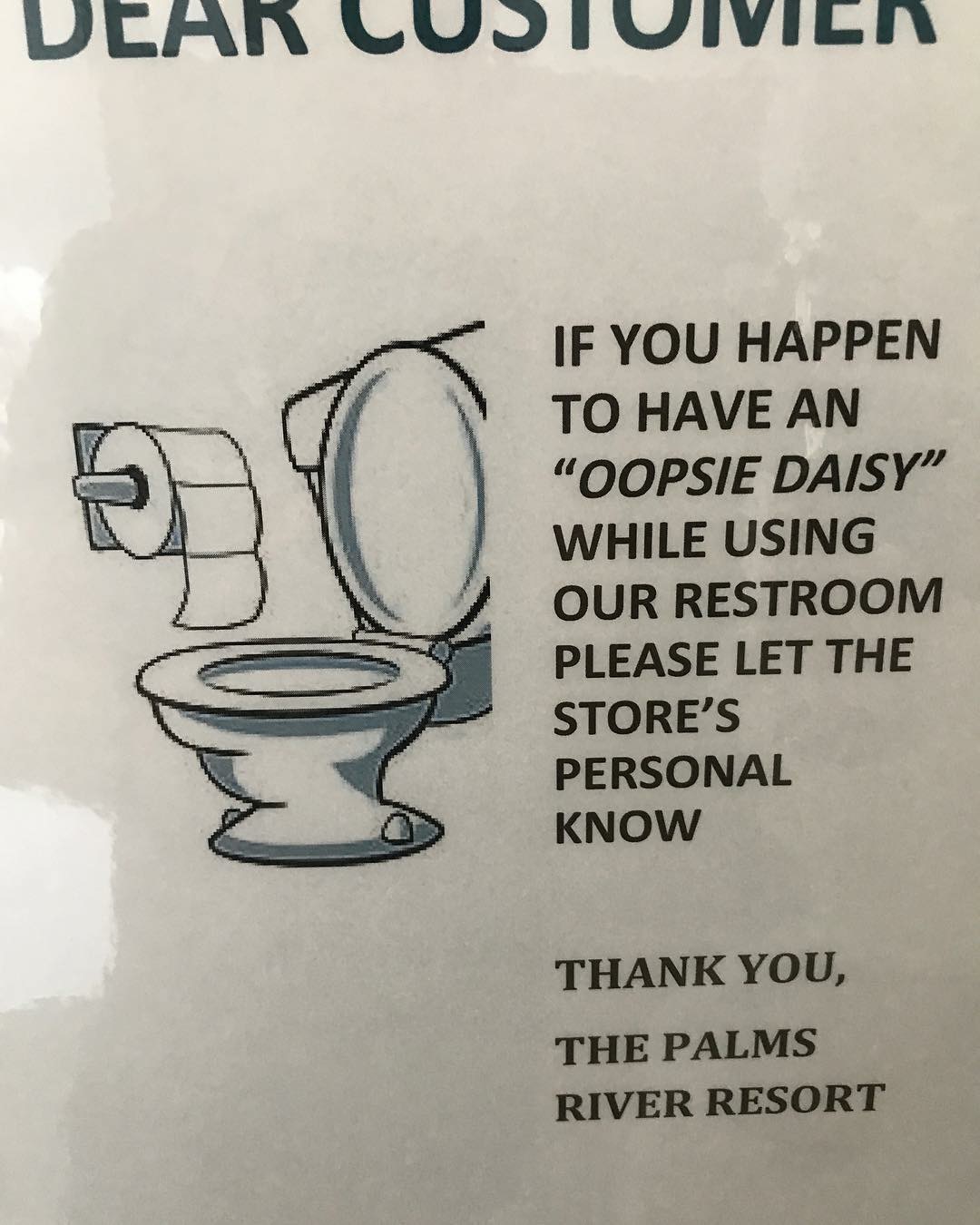This was in an email that I received at work from a local business publication. I’m pretty sure they mean to say “morale,” but that’s not what it says.

This was in an email that I received at work from a local business publication. I’m pretty sure they mean to say “morale,” but that’s not what it says.

My cousin sent this one to me. I hope they also work on brakes!

 It’s time for “Confusing Words of the Week” where I take a set of two or three words that get confused and give you definitions and try to give you a memory trick to help you remember when to use which word. If you have words that confuse you, use the Ask PTB tab on the website or send an email to proofthatblog@gmail.com and they may appear here soon!
It’s time for “Confusing Words of the Week” where I take a set of two or three words that get confused and give you definitions and try to give you a memory trick to help you remember when to use which word. If you have words that confuse you, use the Ask PTB tab on the website or send an email to proofthatblog@gmail.com and they may appear here soon!
This week’s words are:
Defuse – to make less harmful
Diffuse – (v) to spread; (adj.) wordy, badly organized
Memory tips:
Defuse – to De-Fuse the situation
Diffuse – make a difference in the atmosphere (to spread) and to make it difficult to read (wordy, badly organized)
My local news station came through for me again with this error:

I received this from a local hotel in response to my request for information for our holiday party. At first, I only noticed that “specialty” was misspelled. Then once I started looking at it, I saw several instances of “displays serves” when it should be “displays serve.”

I saw this sign recently while walking to Disneyland from our hotel.

It’s time for “Confusing Words of the Week” where I take a set of two or three words that get confused and give you definitions and try to give you a memory trick to help you remember when to use which word. If you have words that confuse you, use the Ask PTB tab on the website or send an email to proofthatblog@gmail.com and they may appear here soon!
This week’s words are:
Memory tips:
I found this on a friend’s Facebook page and he gave me permission to use it. Besides what the heck is an “Oopsie Daisy,” who am I supposed to let know? Perhaps you mean the store’s personnel?

 I learned a very interesting fact while on a tour in Disneyland last week. It seems that a committee was appointed on June 11, 1776, to draft the Declaration of Independence. Thomas Jefferson took the laboring oar and did the initial draft. Forty-seven alterations were made to that draft before it was presented to Congress on June 28. Congress voted for independence on July 2–and then continued to edit the document, making 39 more edits before voting for adoption of the Declaration of Independence on July 4. Although Mr. Jefferson did not agree with many of those final edits, they were made and the Declaration was printed late in the day on July 4. Thus, July 4 is Independence Day, even though the vote approving independence was made on July 2.
I learned a very interesting fact while on a tour in Disneyland last week. It seems that a committee was appointed on June 11, 1776, to draft the Declaration of Independence. Thomas Jefferson took the laboring oar and did the initial draft. Forty-seven alterations were made to that draft before it was presented to Congress on June 28. Congress voted for independence on July 2–and then continued to edit the document, making 39 more edits before voting for adoption of the Declaration of Independence on July 4. Although Mr. Jefferson did not agree with many of those final edits, they were made and the Declaration was printed late in the day on July 4. Thus, July 4 is Independence Day, even though the vote approving independence was made on July 2.
This is how important proofreading has been in our history and I have even more respect for Thomas Jefferson. He had the most difficult job in the whole process!
This is a photo of my error. I did a global search and replace to replace “Company” with “City” and this shows the danger of doing that without checking what was replaced.
